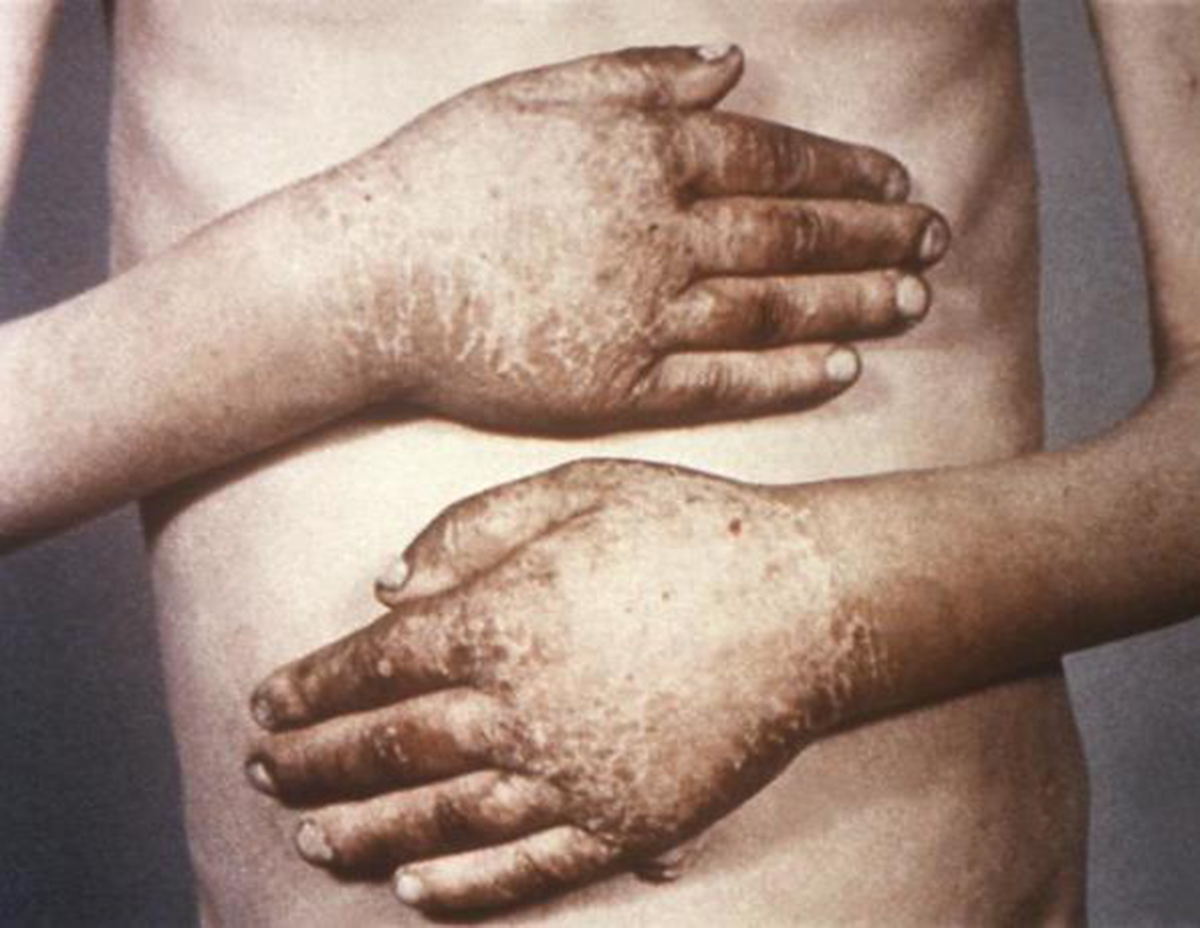
Pellagra
Pellagra is a medical condition caused by lack of the vitamin B3 (niacin). Pellagra can be primary or secondary. In case of primary pellagra the actual cause is insufficient intake of niacin while in secondary pellagra the vitamin is taken but it cannot be absorbed properly. This medical condition is common for developing countries where people are very poor and suffer not only from vitamin insufficiency but they suffer from general undernourishment.
Causes of Pellagra
Insufficient intake of niacin is one cause of pellagra. This vitamin is essential for numerous processes in the body. Pellagra may also occur due to insufficient intake of tryptophan. Tryptophan is an essential amino acid and it can be used for synthesis of B3 vitamin. This amino acid can be only taken by food such as groundnuts and beans and inadequate consumption of foods rich in tryptophan may be responsible for pellagra.
Another cause of pellagra is the presence of leucine. Leucine is amino acid that interferes in the metabolism of tryptophan and does not allow proper synthesis of niacin.
Chronic diarrhea affects adequate absorption of food. This also reflects on the absorption of niacin and may lead to pellagra.
Elderly people are susceptible to pellagra more than children and adults. This can be explained by weakness of their digestive systems.
Pellagra may be additionally caused by different gastrointestinal diseases or acute addiction to alcohol.
Secondary pellagra may be induced by ulcerative colitis, chronic alcoholism, liver cirrhosis and carcinoid tumor. Furthermore, it can occur as a side effect of certain medications.
Symptoms of Pellagra
This medical condition is also known as ' the three D's' which stands for diarrhea, dermatitis and dementia. These are the three leading symptoms of pellagra and they always occur if intake of niacin is insufficient. Additional symptoms of pellagra include increased sensitivity to light, aggression, alopecia, edema, smooth and beefy red glossitis, red skin lesions, insomnia, and weakness. Apart from the previously mentioned patients may also develop mental confusion, ataxia, and paralysis of extremities, peripheral neuritis and dilated cardiomyopathy.
Treatment for Pellagra
Oral form of nicotinamide is an excellent for reversal of the clinical manifestations of the disease. Majority of patients are undernourished and they require a high-protein diet and B-complex vitamins. Severe cases of pellagra require bed rest until patients fully recover.
People suffering from alcoholism may benefit from B complex of vitamins.
Pellagra can be successfully prevented with a food high in proteins and sufficient intake of calories as well as proper intake of other nutrients including vitamins and minerals.

















Your thoughts on this
Loading...